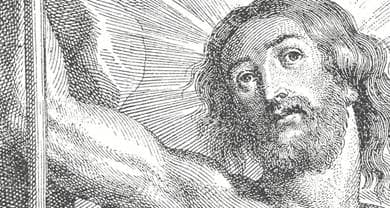- Trending:
- Pope Leo Xiv
- |
- Israel
- |
- Trump
- |
- Social Justice
- |
- Peace
- |
- Love

RELIGION LIBRARY
Anglican/Episcopalian
Principles of Moral Thought and Action
Anglicanism's teachings on moral thought and action are similar to those of other traditions of Reformed Protestantism. Before a person receives the gift of saving faith in Jesus Christ (which is trust that one's sins are forgiven on account of Christ's sacrificial death on the cross), none of that person's deeds is "good" in the sense of being pleasing to God. All works done apart from faith have the nature of sin because they are not done as God wills. That is not meant to imply some defect in the action itself (as if a believer's method of, for example, helping a needy person is more effective than that of a non-believer), or that only believers are capable of helping their neighbors in need. Rather, it refers to a lack in the heart of the non-believer. Good works, works that are pleasing to God, are works that flow out of faith in Christ.
After a person receives saving faith, good works follow as the fruits of that faith. Indeed, a true and lively faith necessarily produces good works. Further, there is a visible goodness about a believer's good works, for they indicate a person's lively faith just as the nature of a fruit indicates the nature of the tree from which it came.
Although one might conclude from this position that Christians are capable of attaining moral perfection in this life, that is not the teaching of Anglicanism. Anglicanism teaches that even the good works of believers could not withstand God's judgment. In other words, there is no human work that is untainted by sin. But the good works of the believer are nevertheless pleasing to God in Christ, that is, on account of Christ.
Moreover, Anglicanism teaches that Christians continue to sin in many things. Not all of a believer's works are pleasing to God. Many, in fact, are offensive, and even willfully so. Thus may a Christian depart from God's grace, but also may by God's grace return and amend his or her life.
Before turning to the issue of how one may determine whether or not a work is good, it should be noted that not all Anglicans adhere to the beliefs about good works just described. Some reject the idea that the works of non-believers cannot please God. Others agree that Christians continue to sin, but disagree that no works are completely good. The believer, unlike the non-believer, is empowered by the Holy Spirit to do works that are wholly good. The believer does not do such works in all cases, but does do them in some cases.
The bases for determining the goodness of a work are scripture, tradition, reason, and experience. Opinions are quite diverse as to the roles of the four. As originally described by Richard Hooker, scripture had primary authority, reason secondary, and tradition tertiary. Experience was not included as a source of authority.
Today the three Hookerian sources of authority have become four, and there is no uniform opinion as to how the four properly relate to one another. Since the advent of Liberalism, the demise of universal agreement that scripture carries final normative authority has resulted in a scramble to fill the vacuum, with experience and reason predominating among those who tend to mitigate biblical authority. Consequently, Anglican ethical teaching has become greatly influenced by the cultural norms that color both human experience and conceptions of the reasonable. Furthermore, even to the extent there is agreement as to where to turn for authority, interpretations of the contents of that authority differ significantly.
To the extent that the Bible remains authoritative among Anglicans, the most commonly cited ethical teachings would include the Old Testament's Ten Commandments, Jesus' Great Commandment (love the Lord God with all that you are, and love your neighbor as yourself--cited by Christ out of the Hebrew scriptures as the summation of the law and prophets), and Jesus' Sermon on the Mount. The Sermon on the Mount includes: the teaching that anger is as morally damnable as murder, and lust is as damaging as adultery; proscriptions on retaliation and judging others; injunctions to give to the needy and love one's enemies; and the Golden Rule, calling us to do unto others as we would have them do unto us.
Another moral teaching that has become hugely controversial in recent decades consists of Old and New Testament indictments of homosexual practices. Some view the statements as culturally conditioned and no longer relevant, while others uphold them as enduring pronouncements from God. One recent view is that the indictments only refer to homosexual conduct by those who are not naturally homosexuals.
Anglicans have a long history of involvement in matters of social justice. For example, William Wilberforce famously took a leading role in abolishing Britain's involvement in the slave trade, and Bishop Desmond Tutu was at the forefront of the struggle against apartheid in South Africa. Today, Anglicans of all stripes continue the fight against oppression, poverty, and other social evils.
Study Questions:
1. Describe the Anglican relationship between faith and works.
2. What would classify one’s works as “good”?
3. How might culture influence one’s understanding of ethical behavior?
4. What moral teachings are often cited in Anglicanism?
5. Why could it be said that Anglicans have a long history of involvement with social justice issues?










